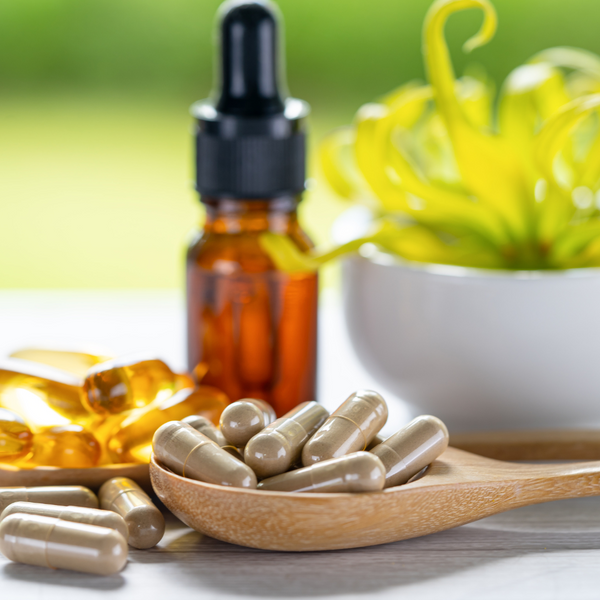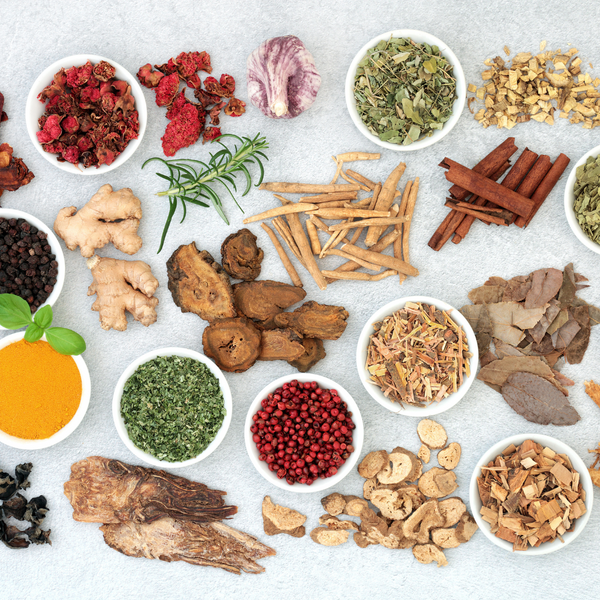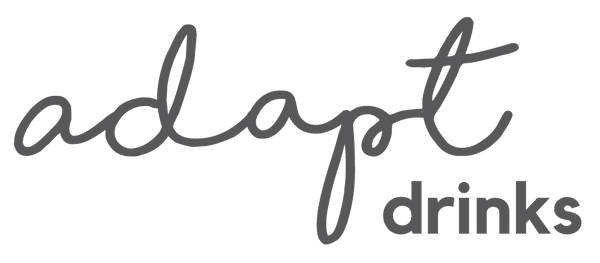
Adaptogens and Nootropics - What's the Difference?
Adaptogens and nootropics are both very on trend right now in the health and wellness space. For those who have always been interested in natural supplements these concepts may not be new but for many adaptogens and nootropics are terms that they are not really sure about. To understand the difference between the two, first let's take a look at what each of them are.
What are Adaptogens?

Adaptogens are a class of herbs and mushrooms that are have been shown to help the body adapt to stress and promote overall well-being. These natural substances are thought to regulate the body's response to various stressors, whether they are physical, chemical, or biological. Adaptogens are often used in traditional medicine systems such as Ayurveda and Traditional Chinese Medicine to enhance resilience, support the immune system, and improve overall vitality.
Here's a list of some adaptogenic herbs and mushrooms that you may have heard of or read about recently:
- Schisandra Berry: Has been shown to increase resistance to stress and improve mental performance. (One of the two adaptogens in Adapt Drinks.)
- Panax Ginseng: Know for improving energy levels, reducing stress, and enhancing cognitive function. (One of the two adaptogens in Adapt Drinks.)
- Ashwagandha: Known for its stress-reducing and mood-balancing properties.
- Rhodiola Rosea: Has been shown to enhance resilience to stress and improve cognitive function.
- Reishi Mushroom: Has been shown to support the body's response to stress and promote overall well-being.
- Cordyceps Mushroom: Known for its potential to increase energy levels and reduce fatigue.
What are Nootropics?

Nootropics, also known as "smart drugs" or "cognitive enhancers," are substances that are believed to improve cognitive function, including aspects such as memory, creativity, focus, and overall mental performance. Nootropics are often used with the aim of boosting productivity, enhancing learning capacity, or improving mental clarity.
Nootropics come in a variety of forms:
- Prescription Medications: These are typically stimulants used to treat conditions like ADHD or Alzheimer's disease. They may have nootropic effects as a side benefit, but their primary purpose is to address the underlying medical condition.
- Synthetic Compounds: These are lab-created substances designed specifically to target brain function and enhance cognitive performance.
- Natural Supplements: This category includes a wide range of substances like but not limited to (there are many more):
- Caffeine: The most widely consumed nootropic in the world, caffeine is a stimulant found in coffee, tea, cocoa beans, guarana, and yerba mate. It works by blocking adenosine receptors in the brain, preventing feelings of tiredness and promoting alertness, focus, and concentration.
- L-Theanine: An amino acid found naturally in green tea, L-theanine has calming and focus-enhancing effects. It works by increasing alpha waves in the brain, promoting relaxation without drowsiness. L-theanine is often combined with caffeine to create a synergistic effect, promoting alertness and focus while reducing jitters.
- Creatine: Often thought of as a muscle-building supplement, creatine can also benefit brain function. Creatine has been shown to help supply energy to brain cells, which may improve cognitive performance, memory, and learning.
- Panax Ginseng: an adaptogenic herb that also has nootropic properties, panax ginseng is thought to improve cognitive function, memory, and learning. It is thought it may work by reducing oxidative stress in the brain and improving blood flow.
- Alpha GPC: Is a choline compound that is used as a dietary supplement to enhance cognitive function. Alpha GPC is known for its ability to increase levels of acetylcholine in the brain, which is a neurotransmitter involved in memory, learning, and other cognitive processes.
- Bacopa Monnieri: An herb used in Ayurvedic medicine, bacopa monnieri is thought to improve memory, learning, and focus. It may work by increasing levels of acetylcholine, a neurotransmitter important for learning and memory.
Adaptogens and Nootropics - What's the Difference?

So what is the difference between Adaptogens and Nootropics? Adaptogens focus on helping the body adapt to stress. They aim to regulate the body's response to stress hormones like cortisol, promoting resilience and reducing fatigue, anxiety, and other stress-related issues. Adaptogens work with the body's natural systems to enhance stress resilience. They will not resolve stress issues alone but can be a valuable addition to a stress-reduction plan alongside healthy habits like exercise, eating well and relaxation techniques.
Nootropics aim to improve cognitive function. They target brain functions like memory, focus, attention, and even creativity. While some nootropics may offer cognitive benefits, they should be seen as a complement to a healthy brain lifestyle, not a magic bullet. Getting the basics right of adequate sleep, good nutrition and managing stress are essential before looking to optimise cognitive function further.
Choosing Between Adaptogens and Nootropics
So now that you know all about adaptogens and nootropics, the similarities and the differences which ones are right for you? Well that is very dependent upon the individual and the first thing to consider is you goals. If stress management is your primary concern, adaptogens might be the best fit. If you're looking for a potential cognitive boost, nootropics could be the ones for you.
And as you can see from the lists above there are a wide variety of natural adaptogens and nootropics for you to try. Some even cross over both categories so it doesn't have to be an either or decision if you are looking to improve overall health and well being. There are also many ready to go options out there that contain both - like Adapt Drinks which has schisandra berry and panax ginseng (adaptogens) and l-theanine and panax ginseng (nootropics), making trying these supplements easy and tasty.
As always it is important to talk to a health professional before making any major changes to your supplements.




